Life
Sign up for our newsletter
We summarize the week's scientific breakthroughs every Thursday.
-
 Genetics
GeneticsProtein comparisons proposed in 1960s for tracking evolution
In 1965, two scientists spotted molecular signatures of primate divergence. The tool became widespread for studying evolution – and one researcher’s career ended in crime.
-
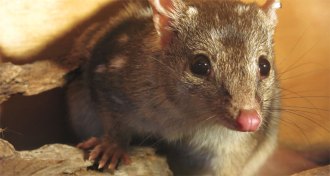
-
 Ecosystems
EcosystemsWhen animals invade human spaces
‘Feral Cities’ explores the wildlife living amongst us, sometimes noticed and sometimes not.
By Nathan Seppa -
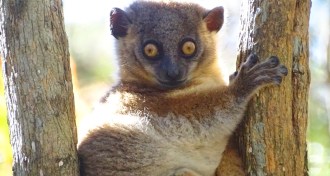 Animals
AnimalsLemurs expected to lose much of their ranges this century
As the climate warms, Madagascar’s little primates will lose habitat, threatening some with extinction.
-
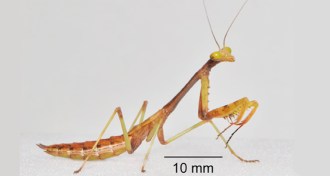 Animals
AnimalsHow a young praying mantis makes a precision leap
Videos of juvenile praying mantises flying through the air reveal how the insects manage to always make a perfect landing.
-
 Animals
AnimalsKiller whales follow postmenopausal leaders
Taking the lead on salmon hunts may be postmenopausal killer whales’ way of sharing their ecological knowledge.
By Susan Milius -
 Health & Medicine
Health & MedicineArsenic spurs adaptation in Argentinian villagers
The people of San Antonio de los Cobres, Argentina, have genetic adaptations that may help them efficiently get rid of arsenic, a new study shows.
-
 Health & Medicine
Health & MedicineDose of extra oxygen revs up cancer-fighting immune cells
Extra oxygen helps immune cells shrink tumors in cancer-ridden mice.
-
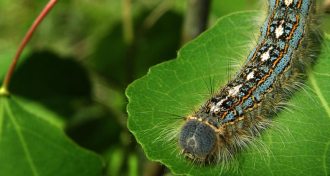 Animals
AnimalsInsects may undermine trees’ ability to store carbon
Insects eat more leaves on trees grown in carbon dioxide-rich environments than those grown without the extra CO2. That may undermine forests as carbon sinks in the future.
-
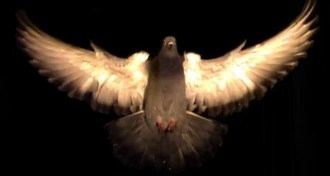 Animals
AnimalsHow pigeons bob and weave through obstacles
When navigating an obstacle course, pigeons weigh energy efficiency against the danger of collision, research finds.
-
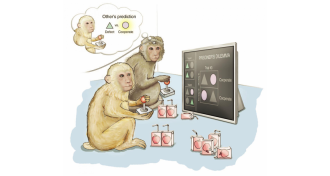 Neuroscience
NeuroscienceBrain cells predict opponent’s move in game-playing monkeys
Newly discovered brain cells help monkeys predict whether a companion will cooperate.
-
 Plants
PlantsPlant growth patterns changing on much of Earth’s surface
More than half of Earth’s land surface has seen major changes in factors such as leaf-on date and how much vegetation grows in a season.